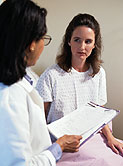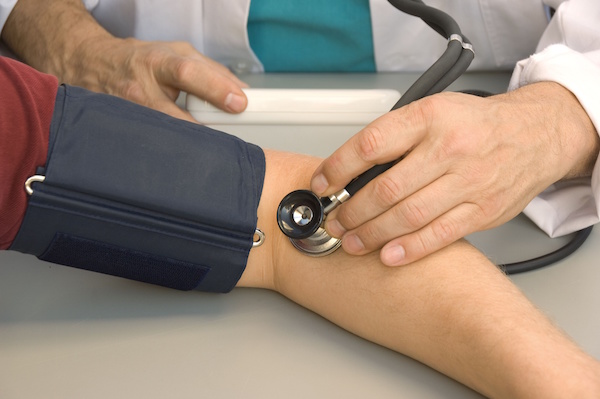
FRIDAY, Aug. 13 (HealthDay News) — Whether buying a toothbrush or a new car, it’s become routine for shoppers to research before buying so they know all the options and can strike the best possible bargain.
Far less often, though, do people apply those tactics to one of their most important regular purchases: a trip to the doctor’s office.
But medical services ought to be tackled the same way any other purchase would be, consumer experts say.
That begins with doing a little homework before going to see a doctor.
“Understand that ordinarily appointments are not very long,” said Arthur Levin, director of the nonprofit Center for Medical Consumers. “Physicians talk a lot and don’t always listen. You have to organize yourself in a way that you maximize the chances that the questions you have will be heard and answered.”
Write down as many details as you can about what’s wrong with you, suggests Don Powell, president and chief executive of the American Institute for Preventive Medicine. And then take that sheet of paper with you to the doctor’s appointment.
“What the patient tells the doctor is 70 percent responsible for a correct diagnosis,” Powell said. “How you describe your symptoms is beneficial in terms of enhancing your outcome.”
You should note:
- Any symptoms.
- Medicines you are taking.
- Relevant family history.
- Any recent lifestyle changes.
- Any health concerns you’ve had on your mind.
If you have some idea of why you’re ill, you also should try doing some research on your own, using either online resources or a medical guidebook, Levin said.
“The more you know about your symptoms or your diagnosis, the more likely it will be that this will be a meaningful visit and you will be satisfied,” Levin said. “The less you know, the less basis you have for evaluating what the physician is saying to you.”
You also might want to call a nurse advice line to get another perspective before hopping in the car, Powell said. Many hospitals and insurance companies offer these advice lines toll-free to patients and customers.
“Patients can actually speak to a health professional before they go to the doctor or hospital,” he said. “They can be triaged over the phone.”
By doing this research, you might learn that your problem could be treated at home without the aid of a doctor. Or, you might learn that an expensive emergency room visit is unnecessary and that the problem can wait until a visit to your family doctor the next day.
Before heading out to the doctor, though, you should do one more thing: Write down all the questions you need answered about your illness or condition.
“Patients who write down their questions are 90 percent more likely to get them answered,” Powell said. “You tend to forget things when you’re in the doctor’s office, and the doctor may rush you.”
If your doctor prescribes a medicine, be sure to ask follow-up questions, Levin said. “Physicians often aren’t terribly inclined to have a full discussion about the drug they are prescribing,” he said. “You need to probe.” Key questions include:
- Why are you prescribing this particular drug?
- Are there alternatives to taking this medication?
- What are the possible side effects?
- Is there a generic version that will do the same job?
And if you’ve been prescribed a procedure or test, ask whether there are any risks associated with it. Also ask about the chances that the test could produce a false positive, requiring further testing and treatment when you’re actually healthy.
Your work hasn’t finished once you’ve left the doctor’s office, Levin said. Don’t let any questions that occur to you later go unanswered, particularly before you undergo a test or procedure.
“If you leave and later remember an important question, call up the office and tell them you forgot one important thing you want to know,” he said. “You don’t have to reschedule an appointment just to get an answer.” Some doctors will take the time to call you back or will have a nurse call you with the answer. Other doctors will communicate by e-mail.
Powell said other tips that can save patients money and improve their health include:
- Setting up a well-stocked home pharmacy. With that in place, you can treat many illnesses that don’t require a doctor’s attention without having to leave the house. Suggested items include antacids, antihistamines, diarrhea medicine, decongestants, throat antiseptics, pain relievers and laxatives.
- Taking advantage of free health fairs and health screenings. Valuable tests often are offered at no charge at these events. “Just make sure you share the results with your doctor,” Powell said.
For more information
The U.S. Surgeon General has more on creating a personal health history.
Read more about health-care advice lines.

